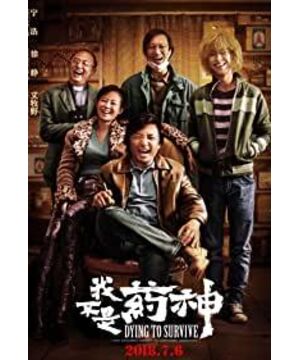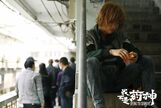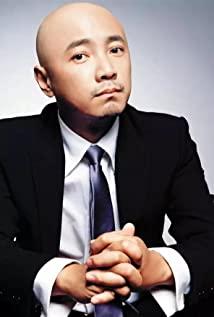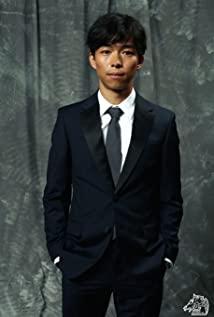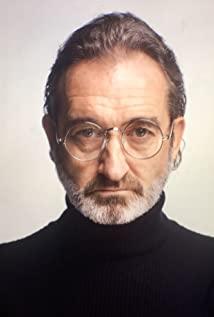After watching it for a long time, I will post a movie review. Without him, I am just lazy.
The country has been waiting for three fools, my god, wrestling dad, mysterious superstar movies for a long time. Based on reality, discussing a specific topic, without losing entertainment, and without being stern to people, the general public can understand.
The Indians set up a model. Coincidentally, this first work I learned is also related to India in terms of subject matter (I also think that the relationship may have been greater. I guess that the male protagonist went to India to buy it again when Lao Lu was dying. The part of the medicine has been edited a lot. Several scenes of the parade, the statues of Shiva and Kali passed by, and the people accompanying them were spraying smoke. Did they have more content and the title of the film was deducted?)
The prototype of the event has been paid attention to for a long time. What I want to say about this is that news is news, and movies are movies, which must be remembered at all times. (In the prototype incident, the lawsuit was settled, and some people went to India to do follow-up reports, revealing that the drug was not exclusively produced, and the one purchased may be one of the less formal ones, and those who are interested can check it out).
I remember that Lu Yong, the protagonist prototype at the time, had an argument after reaching a cooperation with the film party, focusing on "distorting my character", "I have this disease myself, why change it to a person who is not sick?" Of course, this is a layman childish remarks. The protagonist is a middle-aged man who is old and young, waiting for money everywhere and has no way to make money. It resonates far more with the audience than a patient with a rare terminal illness. In fact, the filmmaker also split his prototype into The roles played by Xu Zheng and Wang Chuanjun.
I just watched "Animal World" before watching. The first paragraph also shows the helplessness of the male protagonist. The difference is that one is a young diaosi and the other is a down-to-earth uncle. In this part of "The God of Medicine", the rhythm is faster, and the information conveyed is denser and more natural. This is related to Xu Zheng being an old drama after all, and Li Yifeng has a breakthrough in his acting skills, but he has an idol burden after all. It has to do with the fact that the crew paid more attention to details such as serving the Tao. In the end, this is something that everyone can see and learn. When the publicity and selling point are taken out and exposed to the public, there is no problem. Good students should post their workbooks.
There's not much to say in the middle part, small spit: Starting from the pancake man, it seems to be the formula for filming similar scenes when eating hot pot. I don't know if this trend will feed back to reality. In addition, the FLAG before Huang Mao's death was a bit vulgar. Fortunately, most of the people who entered the cinema in the end were not the audience of Station A and Station B. This set can be eaten for many years.
The ending is the highlight. It also made me understand why the social response was so good—original, the plain truth of "when someone is not sick", although everyone will nod their heads when they hear it, but there is no reason to form a burst point and let so many people go in and watch it.
The scene of "Sending Prisoners on Shili Long Street" gives the answer.
It turns out that this time, the public's G-spot is not at all the pitiful patients, the unscrupulous monopoly companies, and the difficulty of making a living in middle age... but a feeling that they have already vaguely agreed with, but no one has explicitly stated it for them: "They" Always stand on the opposite side of "us".
It is paradoxical and funny that such a sharp scene was actually directed by the regulations of the State Administration of Radio, Film and Television—everyone knows that in Chinese movies, if you do something illegal, regardless of your good intentions or bad intentions, you will end up in jail. If an American movie does the same thing, the protagonist can make a provocative defense in court to move the judge or jury so much that he is released in court, and the protagonist can change his face and go abroad to wave to the police who are chasing him... no matter what kind , the revealing of the opposition between the system and the people will not be so sharp. The audience is satisfied after watching it, and after chewing the popcorn, they go home and move the bricks.
And what about us? After this paragraph was played, the first black screen subtitles—to the effect that the male protagonist was in jail, the country has taken the problem seriously, and the patient is hopeful—appeared, and I could clearly hear the two-character barrage coming from the back row: fart.
Xu Zheng wanted to be realistic from the beginning of "Hong Kong 囧", but at that time, he could see that he was tied up by a partner who still wanted to squeak the audience, and he might not have the skills yet. He couldn't find the best team. According to the licensed book. This time is different.
This is certainly not a masterpiece, but in today's China, it deserves a five-star recommendation.
What a friend said after reading it was quite representative: I couldn't give five stars originally, but thinking about the popularity of traffic, I have to find an opportunity to slap Xiao Xianrou in the face.
As a story writer, I think a little more: After the box office accounts of this film are calculated, the uncle who manages the money will feel a little bit, and serious stories can also make money, right?
View more about Dying to Survive reviews


